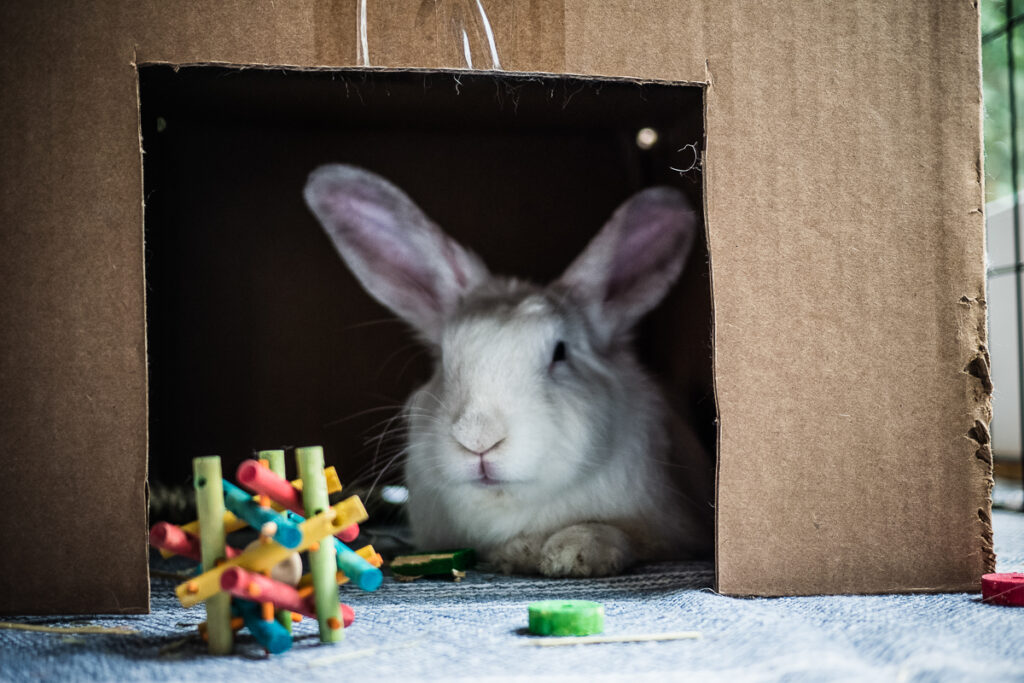Two recent incidents in the media have brought attention to the issue that rabbits, like many other animals, can be susceptible to rare diseases or diseases that do not typically affect rabbits.
The media reported on an outbreak of monkeypox (now known as Mpox) in Wisconsin and the Chicago area. In this case, monkeypox (mpox) was brought to the United States in an inadequately inspected shipment of African rodents intended to be sold as “exotic pets.” These African rodents infectedsome prairie dogs that were housed with them, and the prairie dogs in turn passed the monkeypox (mpox) disease to humans, where it caused a relatively mild infection compared with its much more powerful (and extinct) cousin, smallpox.
Rabbits were drawn into the media fray when a pet rabbit came in contact with an infected prairie dog at a vet clinic and then died shortly after that. Careful testing by the CDC proved that the rabbit was NOT infected with monkeypox. Indeed, during this outbreak, NO rabbit was EVER infected with monkeypox. Until better information was obtained about the rabbit situation, several states took the precaution of halting the movement of several animal species, including rabbits. Those bans were quickly lifted once it was clear that rabbits had no role in the monkeypox infection.
Rescuers closely monitored the monkeypox situation as it unfolded and made efforts to ensure that rabbits were removed from the ban as rapidly and as safely as possible. We remind the public that rabbits pose no risk of transmitting monkeypox to humans or to other species. If you learn of instances where rabbits continue to be discriminated against because of monkeypox fears, please spread the word that rabbits pose “no threat” with respect to this disease. Any such fears are unfounded and should be countered with the correct information.
A few years back, media attention was drawn to an instance where a man was infected with tularemia (aka “rabbit fever’) after making direct, physical contact with rabbit blood. (He had killed a wild rabbit with a lawnmower.) Tularemia is a bacterial disease that can infect humans. It is easily treated with antibiotics. Tularemia occurs in both the U.S. and Canada. The most common cause of human infection is from direct contact with the blood or flesh of wild rabbits (for example, skinning and eating wild rabbit meat). A person can also be infected by a tularemia-infected tick or mosquito or by breathing tularemia-infected dust.
Pet and domestic rabbits do not carry tularemia and therefore cannot infect a person with this disease. They pose no risk of tularemia infection to humans or to other animals, and fears concerning pet rabbits and tularemia are unfounded.
Finally, we wish to remind its readers that rabbits do not carry toxoplasmosis and do not pose a risk to the health of a pregnant woman or her fetus.
Thanks to increased travel, diseases that once were considered rare or exotic can now occur literally in our neighborhoods. Rabbit.org Foundation will continue providing accurate health information to keep you, your rabbits, and other loved ones safe. Look for accurate health information in the health section of our website.
This information pertains to rabbits in North America. The situation may be different in Europe and other places, and people who have concerns should consult their physician or veterinarian.

